Postcards from the Attic: How 2 Women Are Reviving India’s Near-Forgotten Literature
The architects behind the fantastic pursuit are Onaiza Drabu and Prachi Jha, who send out letters to all the people who are looking for something interesting and meaningful to read through Daak.
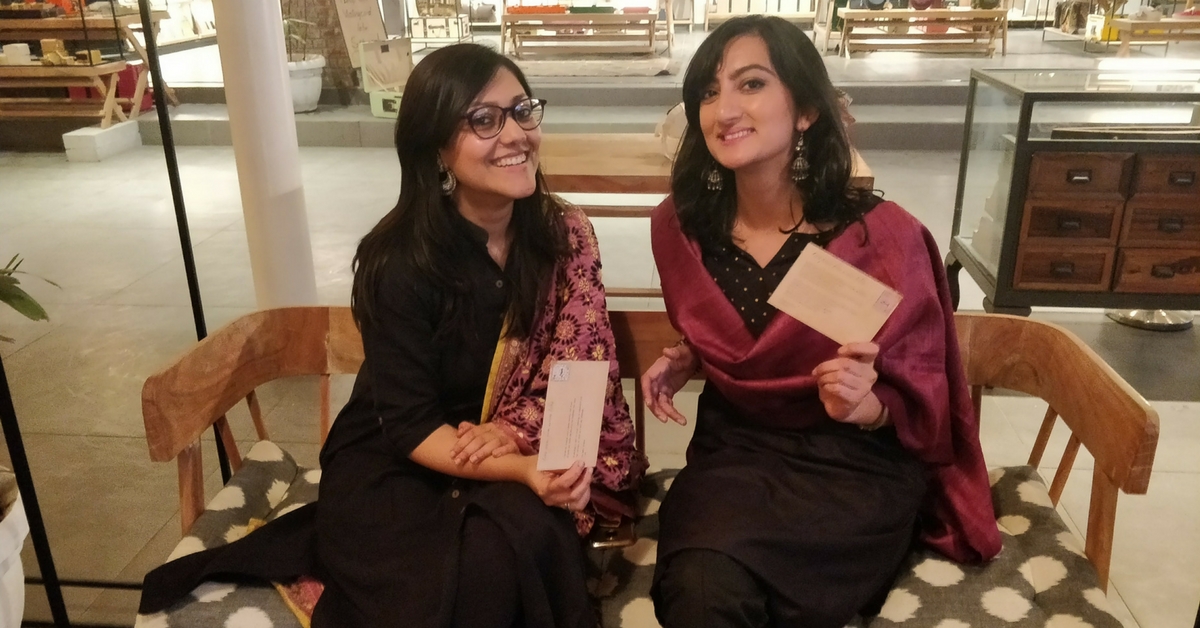
In the classic film, Dead Poets Society, John Keating, a character role immortalised by the late Robin Williams, utters few lines that went on to become one of the most iconic quotes in the history of world cinema.
“We don’t read and write poetry because it is cute. We read and write poetry because we are members of the human race. And the human race is filled with passion. And medicine, law, business, engineering, these are noble pursuits and necessary to sustain life. But poetry, beauty, romance, love, these are what we stay alive for.”
Poetry and literature have kept our ships sailing since time immemorial, and many have found comfort in the alleys of written words penned by great writers and poets, for having resonated with their inner selves at some level.
Yet, fewer takers for these written forms exist in the current generation, where everyone is preoccupied with updating their digital persona, and somewhere along the line, we have truly forgotten how it feels to sink into the many worlds of a writer magically conjured through words, and to ache along with a grieving poet as he muses about parting with his lover.
In a country like India that has a diverse literary heritage in each language, it is often hard to find translations of regional works and if at all there are any, more often than not the essence of the original works often gets misplaced through translations, which have been clumsily pieced together.
With an increase in the numbers of the English-speaking population, not only are we missing out on extraordinary regional works, but also are susceptible to losing these gems to obscurity forever.

In an attempt to curate and revive original artistic creations, two young women are on a unique mission of collecting unknown stories, artworks, and ideas from people who have been instrumental in shaping the Indian subcontinent’s cultural heritage, and repackaging them in a manner that is bound to strike a chord with each one of us.
300 different versions of the Ramayana, the Kashmiri folktale of ‘Himal and Nagrai,’ unseen photographs of iconoclast Amrita Sher-Gil, Mahashweta Devi’s Haunting Tale of Revenge and Manikkavacakar’s Bhakti Poems—Daak presents you with a treasure trove of incredible stories, poems and photographs from the past that you probably wouldn’t find anymore!
What taps right into one’s nostalgia and yearning of the bygone era coupled with the love of literature is the way each post is designed—as a postcard! Further leading one straight down the memory lane are the customised stamps that come along with each postcard featuring different folk arts from across the country.
The architects behind the fantastic pursuit are Onaiza Drabu and Prachi Jha, and both hail from a literature background.
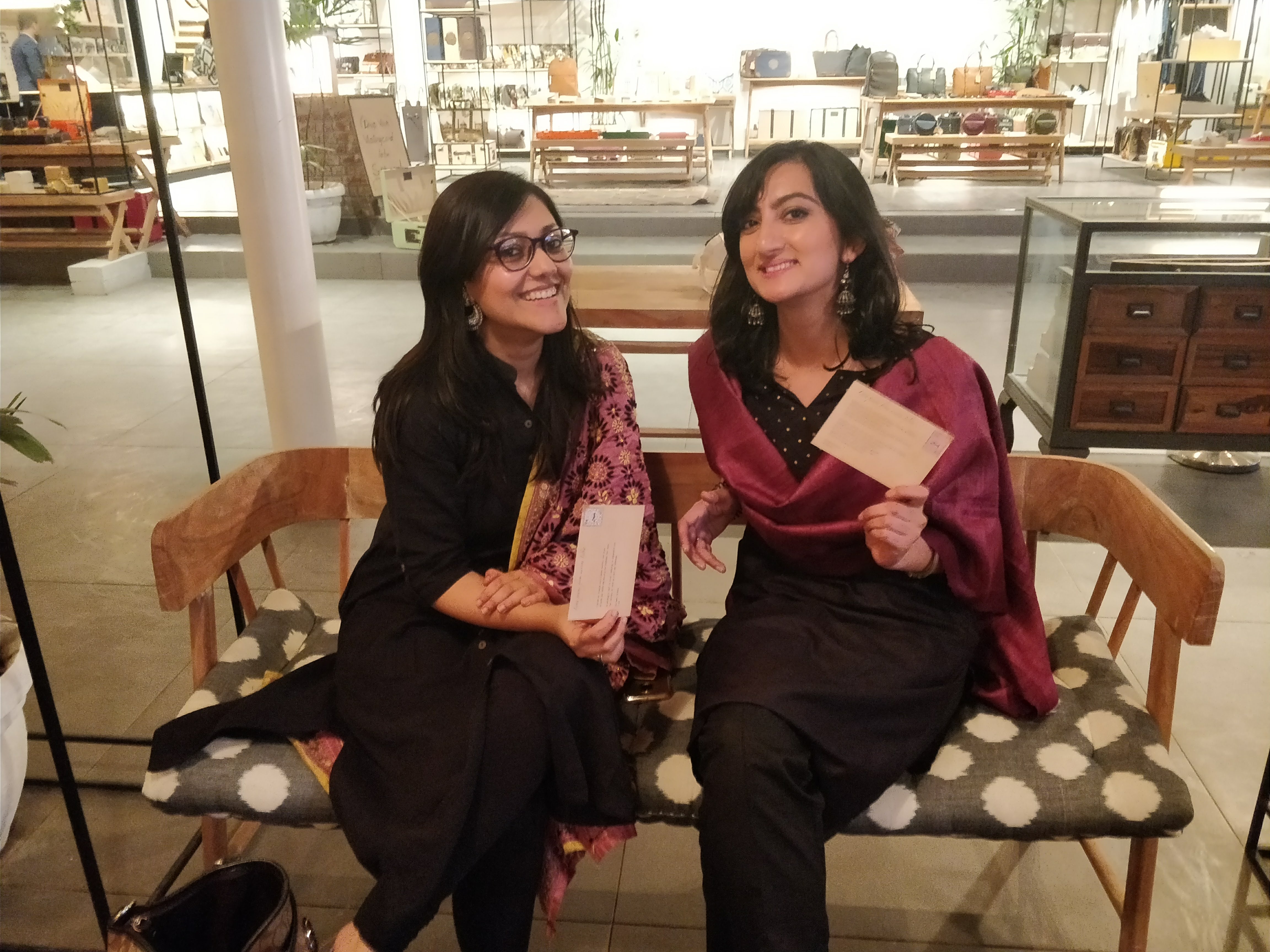
Having met during the Young India Fellowship programme, it was here that they discovered a mutual penchant towards regional literature pertaining to the Indian subcontinent, and hit upon the idea of bringing back forgotten pieces of works from the last 100-200 years.
“Together with few other friends and mentors, we had been brainstorming the idea for a while. Prachi had previously worked on a similar venture as part of her Experiential Module Learning (ELM) with the Dean of the Fellowship whose brainchild it originally was,” says Onaiza to The Better India.
Although the ideation had begun with a boom, the interest soon fizzled out. However, as this was a very special project close to their hearts, they weren’t willing to let go of it.
“It was when we met last year that we decided to take the project up seriously with a style which would appeal to everyone through deeply profound, characteristically humorous and uniquely subcontinental pieces of work from the past,” she explains.
And thus Daak, which translates to post in Hindi, took flight in February last year as an online weekly newsletter circulated amidst family and friends.
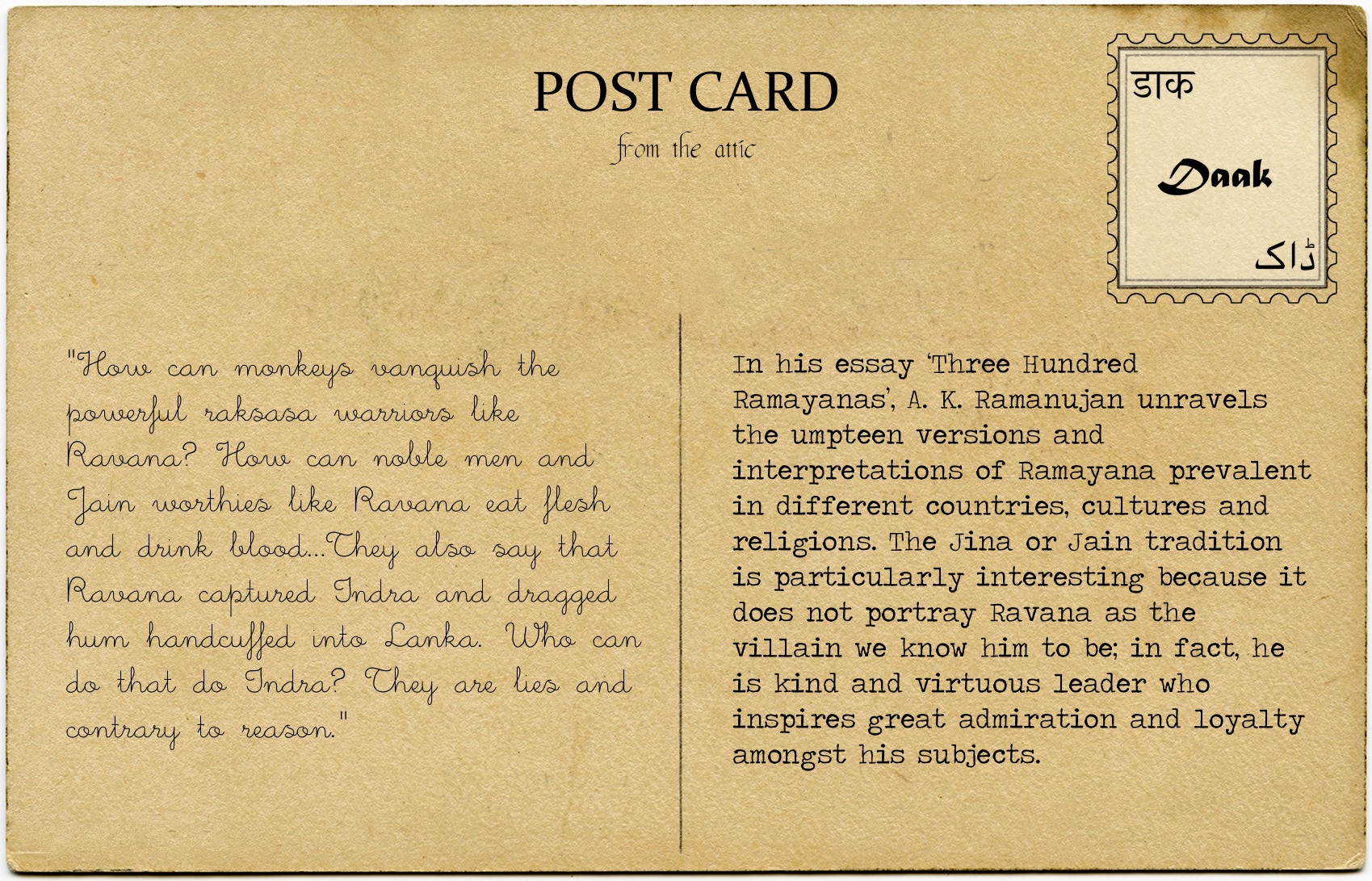
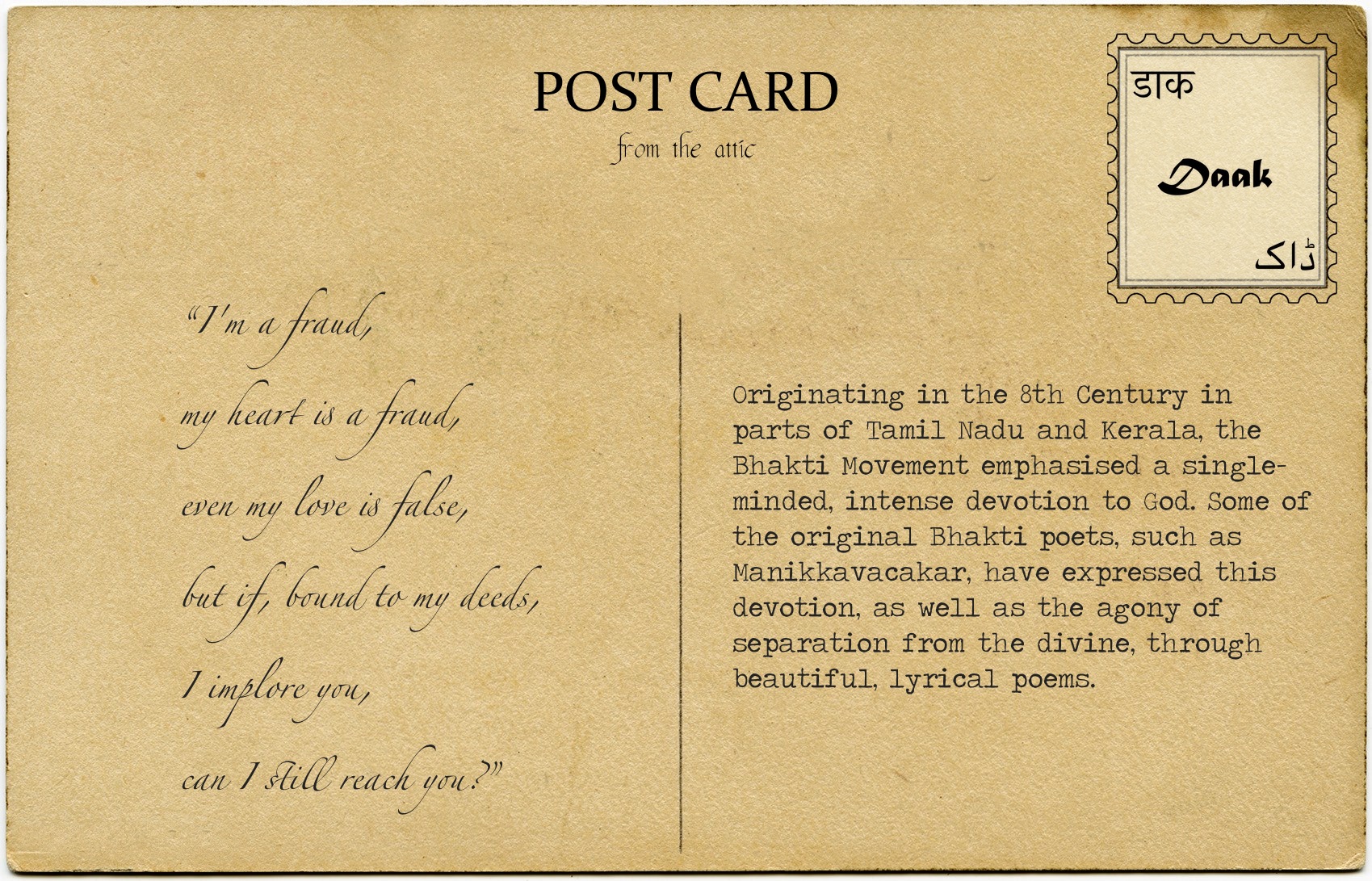
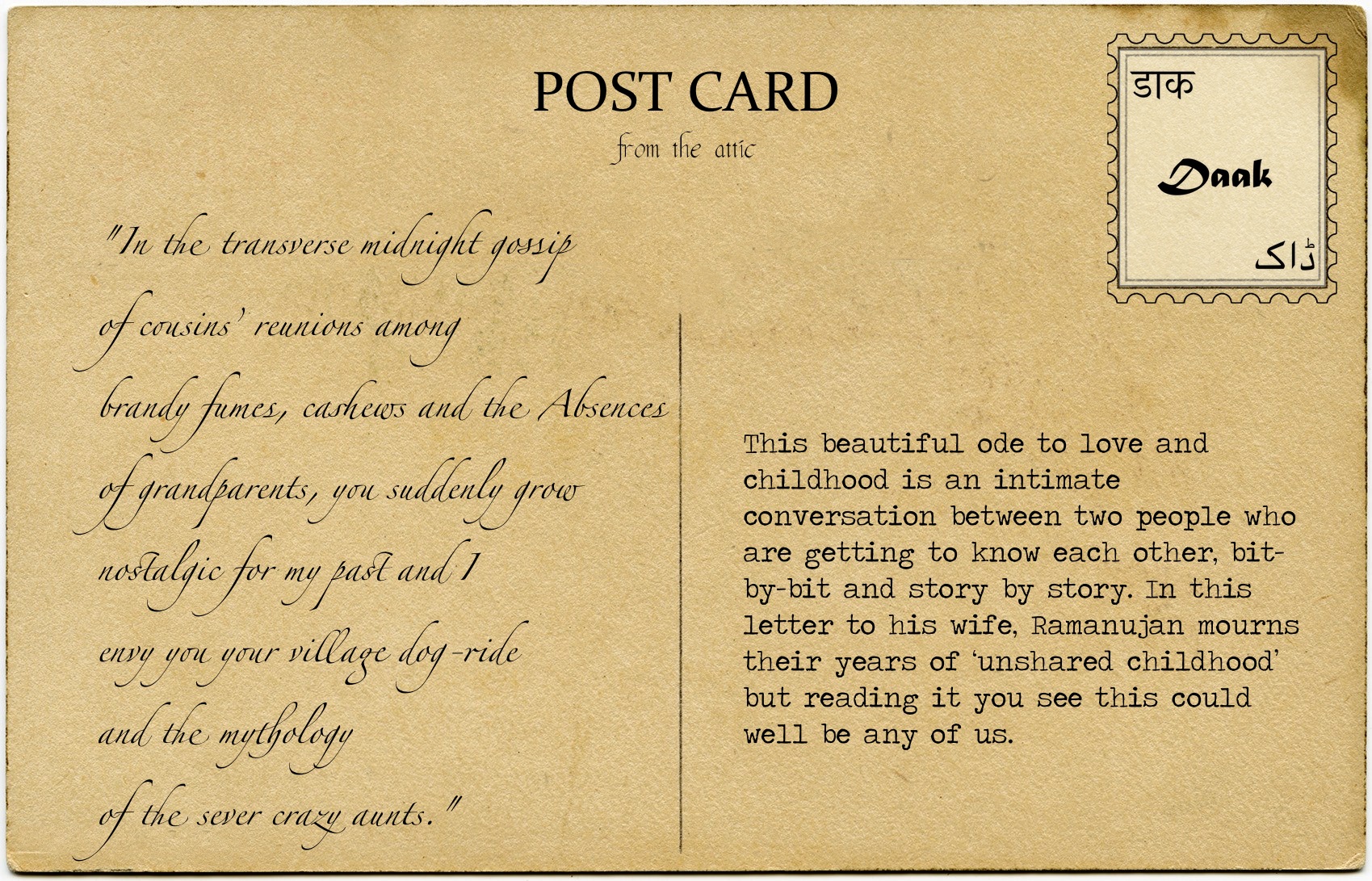
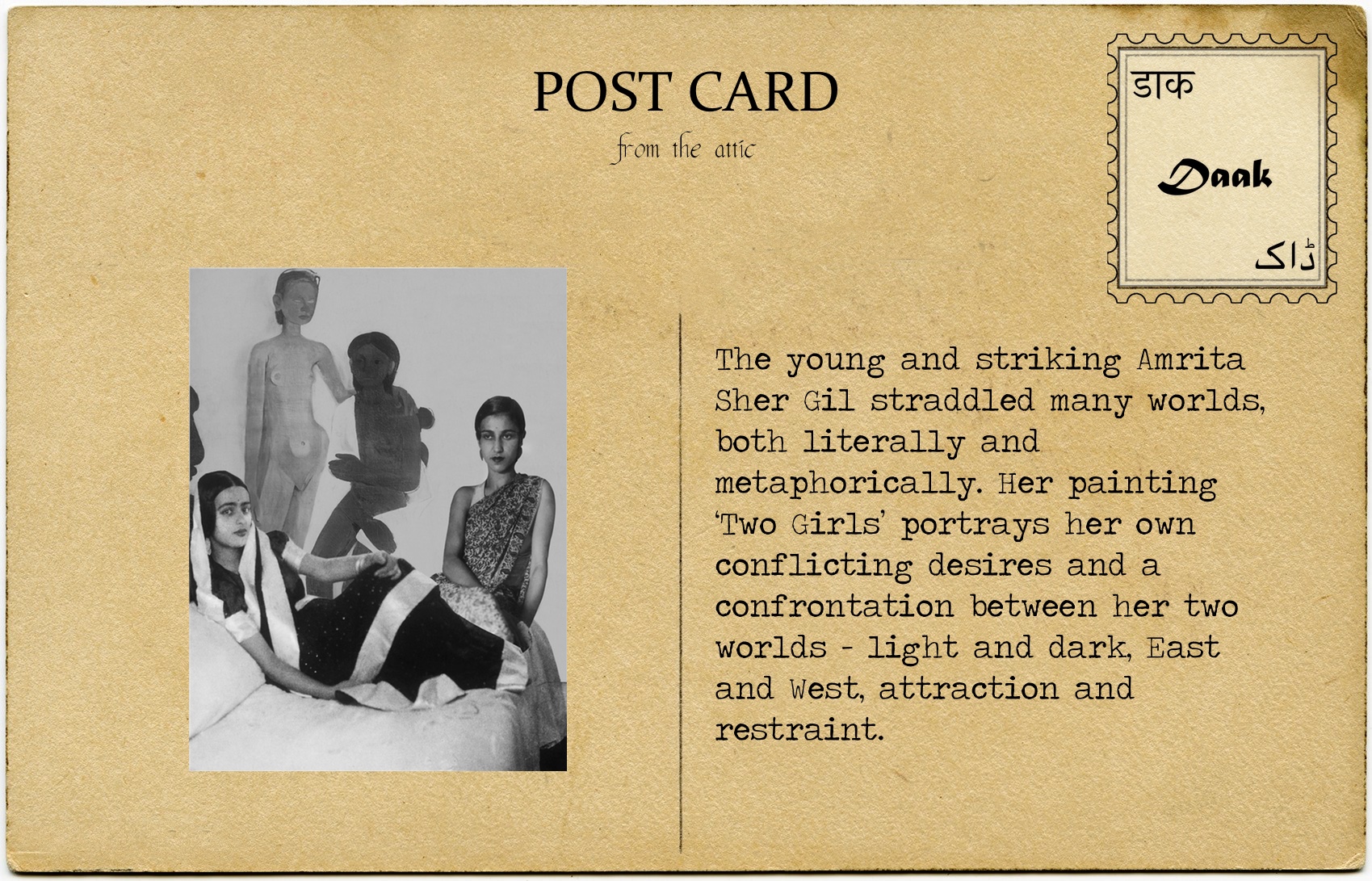
Following a great response, the duo decided to broaden their audience and formally launched the website in May.
“A lot of extensive reading and research goes behind Daak. At times, I have finished reading a book in just one day because of the love and interest that we both have towards literature and would love for our subscribers to find as much joy as we did while reading these. The task of compressing the gist of an entire novel to a 300-word piece is indeed tedious, but we wouldn’t want it to be in any other way,” says Onaiza.
The duo caters to an active subscriber base of 300 people. While they began with Hindi and Urdu, they have started to explore other regional languages to curate content for their weekly dose of Daak.
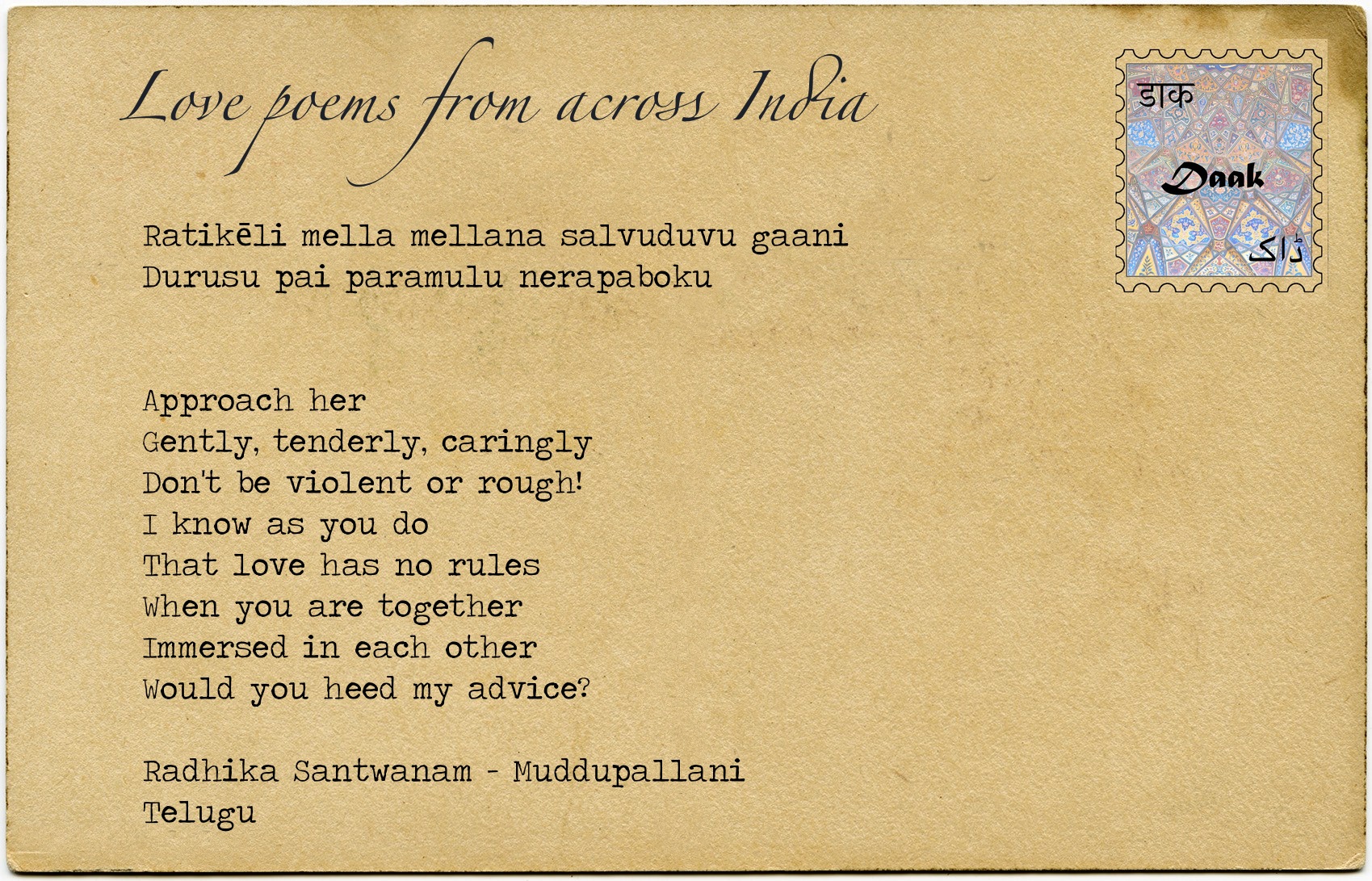
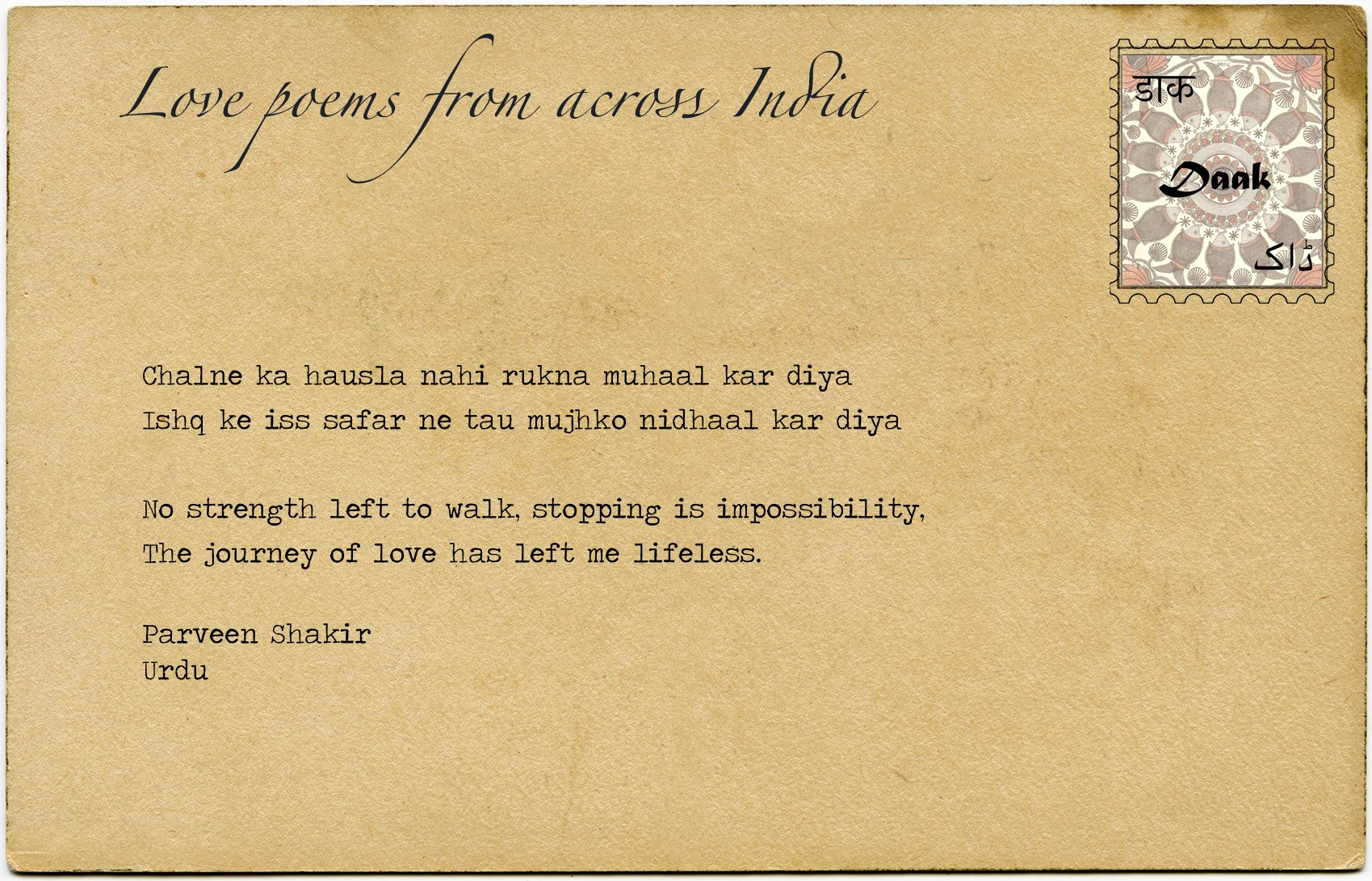
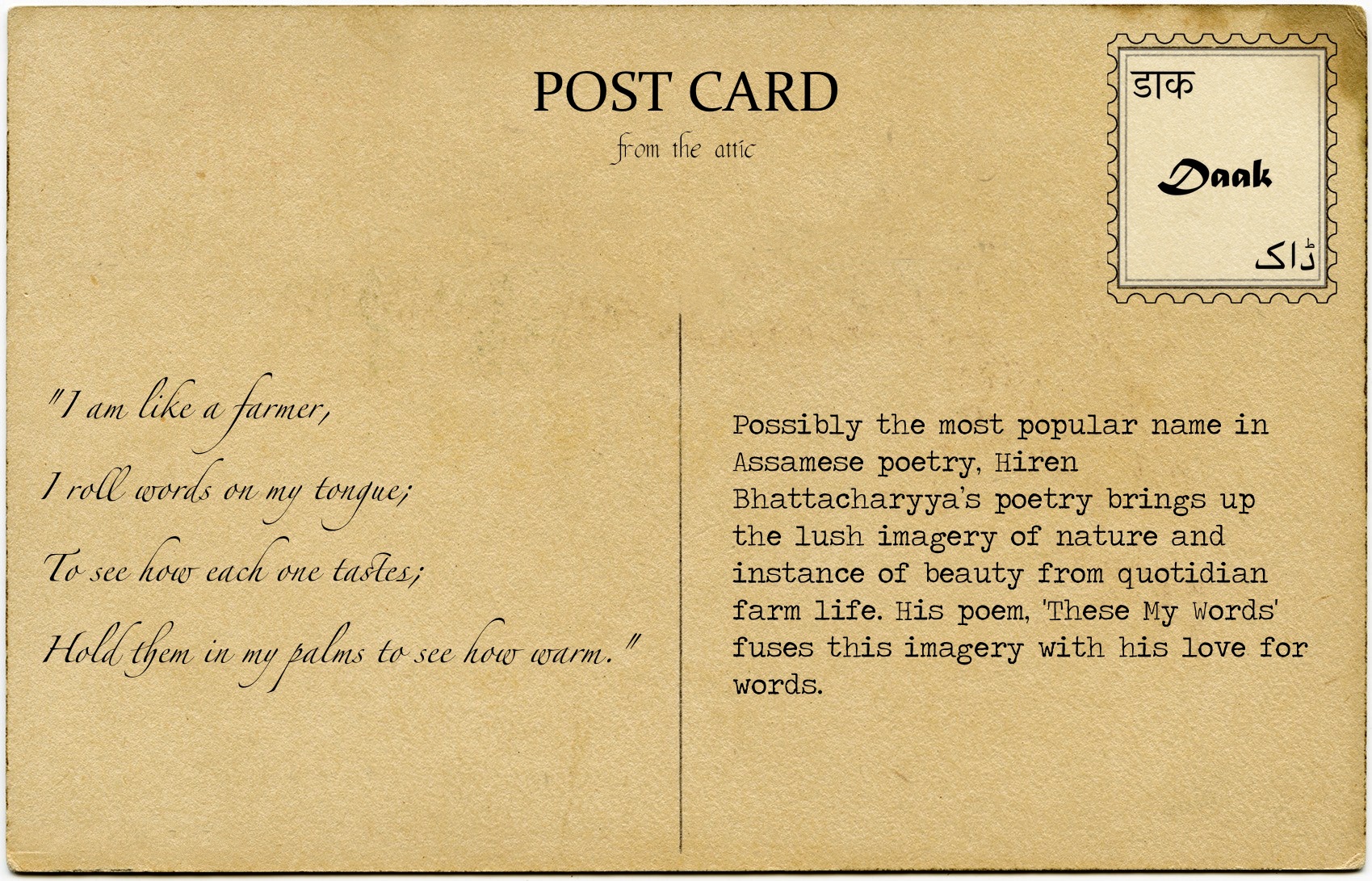
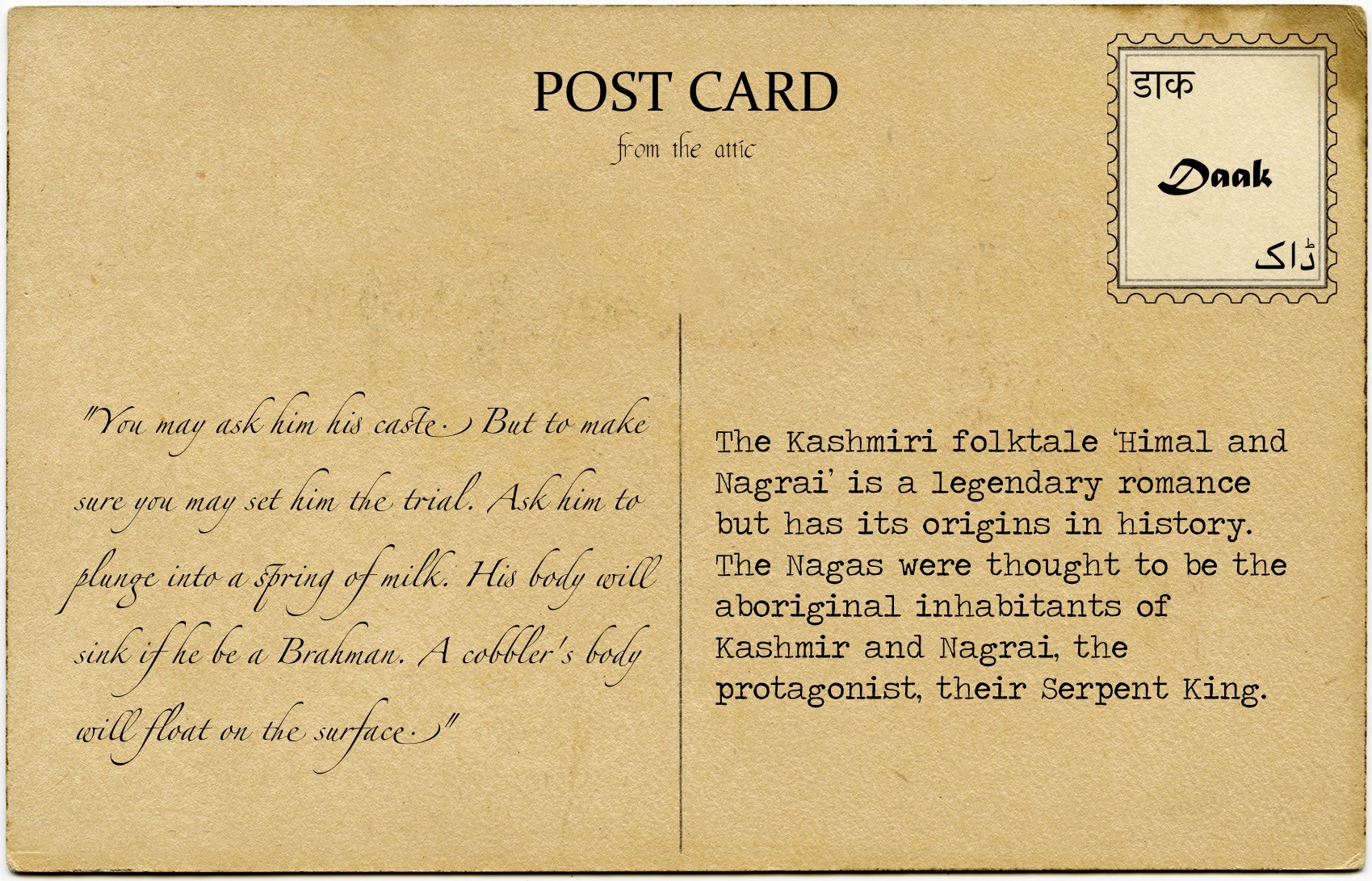
“Evoking the lost art of letter-writing—a patient, deliberate and thoughtful exercise in articulating one’s most compelling thoughts for his or her reader, Daak is our way of sending out letters to all the people who, like us, are looking for something interesting and meaningful to read,” Onaiza adds.
Onaiza and Prachi have very different professional lives—one works with an NGO while the other works with the UNICEF. “But no matter what, we make it a point to dedicate few hours every week for Daak for everything it is today has arisen purely out of our labour of love,” Onaiza says.
Starting out as an online platform, they now plan to organise events to bring together authors, poets, and anyone who shares the love for literature.
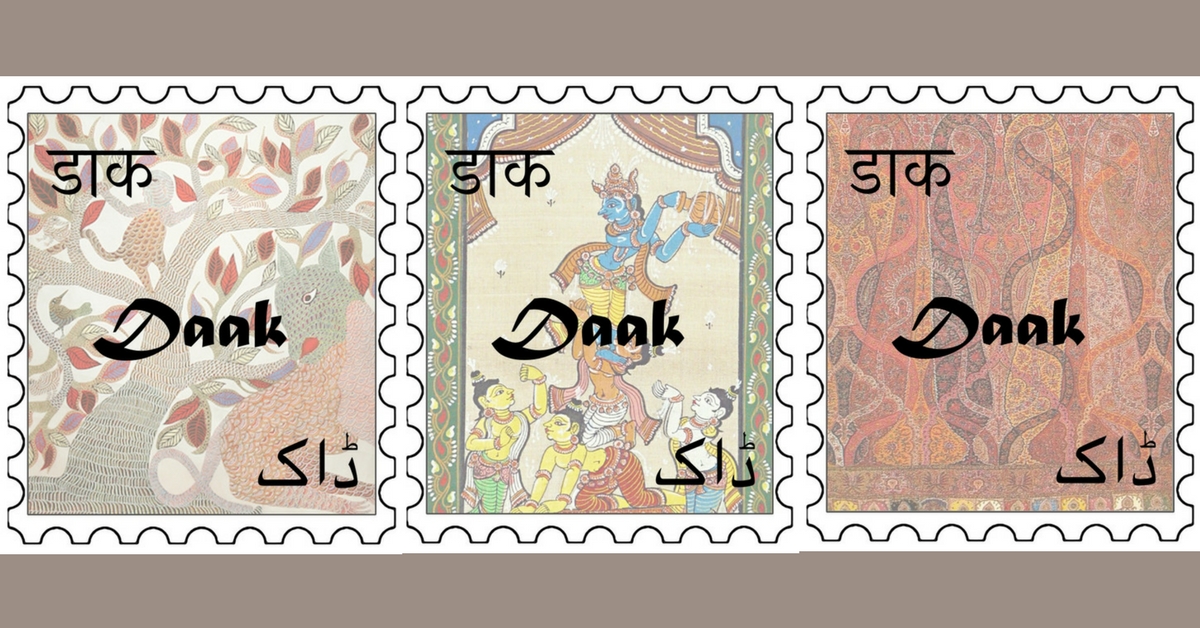
In fact, they organised their first event, Tammana Ki Wussat or Expanse of Desire, last Sunday in Delhi.
“It was a poetry reading session in seven different regional languages which was a fantastic success. At the end of the event, the audience got together to write postcards from the poems they had heard to their loved ones, and we posted them. In 2018, we plan to organise more such events, and bring like-minded people together,” Onaiza adds.
You can find more about Daak here. You can also write to them at [email protected].
Like this story? Or have something to share?
Write to us: [email protected]
Connect with us on Facebook and Twitter.
NEW: Click here to get positive news on WhatsApp!
If you found our stories insightful, informative, or even just enjoyable, we invite you to consider making a voluntary payment to support the work we do at The Better India. Your contribution helps us continue producing quality content that educates, inspires, and drives positive change.
Choose one of the payment options below for your contribution-
By paying for the stories you value, you directly contribute to sustaining our efforts focused on making a difference in the world. Together, let's ensure that impactful stories continue to be told and shared, enriching lives and communities alike.
Thank you for your support. Here are some frequently asked questions you might find helpful to know why you are contributing?


This story made me
-
97
-
121
-
89
-
167














